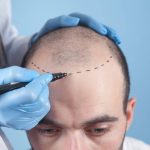What to Know Before a Dental Treatment Abroad
Understanding the Scope of Dental Treatment
Before planning a trip for a dental treatment, it is essential to understand what this term actually includes. Dental treatment can refer to a broad range of procedures, from simple cleanings and fillings to more complex interventions like implants, root canals, and cosmetic dentistry such as veneers or crowns. Each type of treatment comes with its own set of requirements, recovery times, and success rates.
Researching the specific dental procedure you need helps in identifying the best clinic and destination for your needs. It also prepares you mentally and physically for what to expect during and after the treatment. Understanding the complete scope also allows you to evaluate whether the clinic you are considering is truly equipped and experienced in handling your specific dental treatment needs. Having clarity on this prevents miscommunication and ensures you’re receiving the proper care abroad.
Choosing the Right Country and Clinic
Selecting the right destination for your dental treatment abroad is as important as the procedure itself. Not every country offers the same standards of care, regulatory guidelines, or price structures. Popular destinations like Turkey, Hungary, and Thailand are known for combining affordability with high-quality services. Clinics in these regions often cater specifically to international patients, offering streamlined services from consultation to post-operative care.
Look for international accreditations, verified reviews, and transparency in pricing and procedure. A reputable clinic should provide detailed explanations of the procedure, including potential risks and realistic outcomes. They should also be open about the qualifications and experience of their practitioners. Before committing to a clinic, ensure they specialize in the type of dental treatment you require and can demonstrate successful results.
Evaluating Costs and What’s Included
One of the main reasons people travel for dental treatment is the cost savings. However, while procedures may be significantly cheaper abroad, it is crucial to understand what the quoted price actually includes. Some clinics offer full packages covering everything from airport pick-up and hotel stay to all medical services and aftercare. Others may quote only the procedure, excluding necessary extras such as x-rays, medication, or follow-up visits.
To avoid surprise expenses, always request a detailed breakdown of the costs involved in your dental treatment. Ask about payment methods, cancellation policies, and whether post-treatment adjustments or complications will incur additional fees. Budgeting for travel, accommodation, and potential extra appointments is also part of planning a financially sound trip. Knowing what’s included ensures peace of mind and a more pleasant experience overall.
Pre-Treatment Consultations and Requirements
Proper preparation is vital for a successful dental treatment abroad. Most reputable clinics will request recent dental records, x-rays, or detailed medical history prior to your arrival. Some may even offer virtual consultations to assess your case and recommend the most appropriate procedure. These preliminary steps help ensure that the chosen dental treatment is safe and suitable for your oral and general health.
You may be asked to follow specific pre-treatment instructions, such as avoiding certain medications or maintaining oral hygiene routines. Failure to comply could lead to rescheduling or complications during the procedure. Always confirm whether any pre-approval from your home dentist is needed and keep communication lines open between both dental teams. Preparing in advance increases your chances of a smooth treatment process abroad.
Travel Planning and Recovery Time
When planning your trip for dental treatment, it’s important to allow sufficient time for both the procedure and the recovery phase. Depending on the complexity of the dental treatment, you may need to stay in the destination country for several days to a few weeks. This ensures that follow-up checks can be done and any post-operative issues are addressed promptly.
Avoid booking tight return flights or planning intense activities immediately after the procedure. Consider rest days, dietary needs, and pain management in your itinerary. Some treatments, like implants or full smile makeovers, require multiple sessions over several days. Coordinate your travel schedule with the clinic’s availability and treatment plan to minimize stress. Being realistic about your recovery time ensures a safer and more comfortable medical travel experience.
Potential Risks and How to Minimize Them
While many people have positive experiences with dental treatment abroad, it’s important to recognize and prepare for potential risks. These may include miscommunication, differences in medical standards, infection, or the need for corrective work once back home. Choosing a licensed, well-reviewed clinic can reduce these risks significantly, as can being proactive about hygiene, language barriers, and pre-procedure verification.
Ensure the clinic uses modern sterilization techniques and certified materials. Ask about warranties or guarantees related to your dental treatment, and what steps the clinic takes if results do not meet expectations. Understanding both the benefits and the potential downsides allows you to make informed decisions and increases the likelihood of a successful treatment outcome.
Aftercare and Long-Term Follow-Up
Aftercare is a crucial component of any dental treatment, especially when performed abroad. Some procedures require ongoing monitoring or adjustments that cannot always be completed during your initial stay. A good clinic will provide clear written guidelines for post-treatment care and may even offer virtual follow-up consultations once you return home.
If long-term follow-up is required, plan how you’ll handle this—either with a local dentist or during a potential return visit. Keep all medical records, prescriptions, and digital x-rays for future reference. This documentation is essential if complications arise. Investing time in proper aftercare ensures the durability and success of your dental treatment, helping you maintain your oral health for years to come.
Conclusion
Traveling abroad for a dental treatment can be an affordable and effective solution for many patients. With careful planning, thorough research, and a clear understanding of what the procedure entails, international dental care can be both rewarding and successful. From selecting the right destination to managing aftercare, every step plays a vital role in ensuring your safety, satisfaction, and long-term results.
The key lies in preparation—knowing your needs, choosing trustworthy professionals, and making realistic arrangements for travel and recovery. Whether you’re seeking aesthetic improvements or urgent dental solutions, your journey toward a healthier smile begins with making informed choices about your dental treatment abroad.
Frequently Asked Questions
Is it safe to get dental treatment abroad?
Yes, if you choose a reputable clinic with proper accreditation and hygiene standards.
Why is dental treatment cheaper in other countries?
Lower labor and operational costs make it more affordable, without compromising quality.
What should I bring for my dental treatment trip?
Medical records, x-rays, medications, ID, and a travel insurance policy are recommended.
Can I get dental treatment abroad without a referral?
Yes, most clinics accept direct bookings and offer initial online consultations.
How long should I stay after the procedure?
It depends on the treatment; some require only 1–2 days, others may need a week or more.
Will I need a follow-up after returning home?
Yes, some treatments require ongoing care which can be done locally or remotely.
Do clinics offer guarantees for their work?
Many reputable clinics provide warranties on procedures like implants or veneers.
Can I combine dental treatment with a vacation?
Yes, many patients plan leisure time around their dental visits, especially in tourism-friendly cities.
Are dental treatments abroad covered by insurance?
Usually not, unless it’s an emergency or part of an international insurance plan.
What happens if I face complications after returning?
Some clinics offer remote support or may recommend follow-up visits. Having local backup is also helpful.












